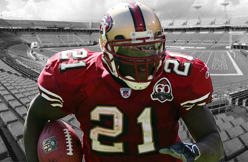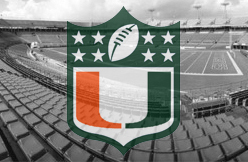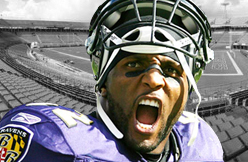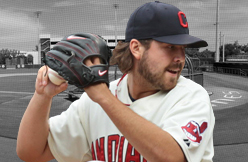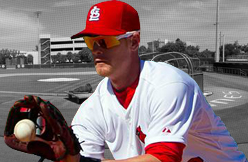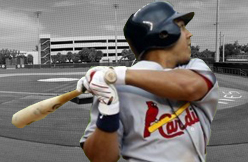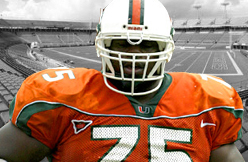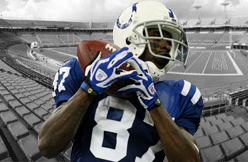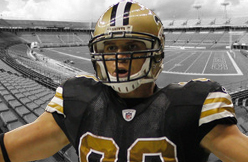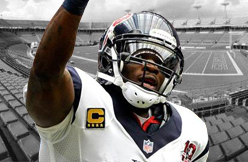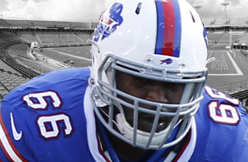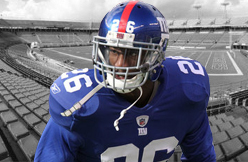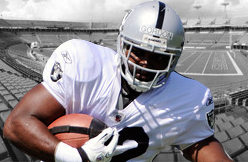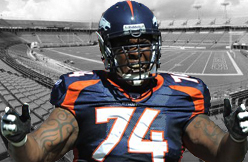DUNEDIN, Fla. — When the Toronto Blue Jays’ public-address announcer boomed the arrival into the batter’s box of a Yankees player named Rodriguez on Saturday, there was neither a boo nor a cheer, nor even a single pair of clapping hands from among the 5,511 fans at Florida Auto Exchange Stadium.
Just silence.
This Rodriguez, after all, was the other Rodriguez in Yankees camp: Eddy Rodriguez, a 29-year-old journeyman catcher. Not the famous No. 13, Alex Rodriguez, although if you add the two digits on the back of Eddy Rodriguez’s pinstriped jersey, they equal 13. He wears No. 67, a sure sign that he is a nonroster invitee, though one whose journey, in his telling, is worthy of an ovation.
On a balmy summer day, Aug. 31, 1993, Rodriguez, then age 7, gathered with his family in El Santo, a speck of land on the northern part of Cuba protected by several barrier keys. The family often went there to fish. What young Eddy did not realize was that his father, Edilio, had been burying drums of diesel fuel in the sand at El Santo.
As the sun set, Rodriguez; his parents; his 10-year-old sister, Yanisbet; and his 16-year-old cousin, Carlos, boarded a 17-foot wooden boat, left everything behind and ventured into the Straits of Florida for what they hoped would be an uneventful 90-mile journey to the United States.
“We had more than most other Cubans,” Rodriguez said, explaining that the family had land, livestock and produce. “We had an abundance, and my father would share what we had with others. He also built a hydroelectric power plant for the neighborhood so we could have electricity, because the government electricity was always going out.
“We had a lot compared to others, but what we didn’t have was a future. I think a big part of why my parents risked everything was for me, so I could have a future.”
Over the next four days, they faced an open sea, a violent storm and sharks.
The storm, with 20-foot waves, happened on them almost immediately, Rodriguez said. His mother, Ylya, kept feeding the children sleeping pills, trying to shield them from as much terror as possible, but Eddy was awake long enough to see the pounding waves and water leaking into the vessel.
“My cousin was throwing up and trying to hand-pump water out of the boat at the same time,” Rodriguez said. “We weren’t making any progress. We’d get to the crest of a wave and then roll straight back, burning fuel but not going anywhere.”
With her daughter interpreting from their home in Colorado Springs, Ylya recently told how a flying piece of wood opened a gash on her head, and how they compressed the wound with towels, frantic not to allow her blood to mingle with the water they were pumping out of the boat, for fear it would attract sharks.
By Day 3, Rodriguez said, the storm continued to rage, and the food and fuel were nearly exhausted.
The castaways huddled in the middle of the boat and prayed as Ylya sat between her husband’s legs and draped her arms around the children.
Everything was black — the sea, the sky, and especially their dreams of a new life.
And then, Rodriguez said, a miracle.
“I know people don’t believe it, but I was there,” he said.
To the left and right, the storm raged. “But where we were, straight ahead, it opened up,” he said. “It was like a clear tunnel for us.”
With the little fuel they had left, they motored into calmer waters. Eventually, a freighter en route to Chile, from New York, spotted them. The crew fed them scrambled eggs, bread, apples, cantaloupe, bananas, water and coffee.
The freighter also radioed the United States Coast Guard. Almost five hours later, the Rodriguez family arrived in Miami, where relatives helped them settle into a small apartment.
Rodriguez went from playing baseball with broomsticks and wadded-up medical tape passing as a ball to playing with real equipment. He latched onto a South Florida player with the same surname: Alex Rodriguez.
“I had a plaque of him in my bedroom, when he played for Seattle,” Eddy Rodriguez said. “My friends started calling me E-Rod.
“Later, when I began playing catcher, Pudge Rodriguez became my favorite player,” he added, referring to Ivan Rodriguez.
Rodriguez said he told his mother that one day he would attend the University of Miami, and when he was a high school sophomore, the program sent him a questionnaire.
“When I saw it, I cried,” he said. He eventually played for the Hurricanes before signing with the Cincinnati Reds as a 20th-round draft pick in 2006.
The Yankees are Rodriguez’s fifth organization in 10 years, with his only major league experience coming in 2012, when he had five at-bats with the San Diego Padres, hitting a home run in his first plate appearance. His career minor league batting average is .235.
Last season, he worked as a minor league coach in the Boston Red Sox organization, ready to move into the next phase of his career. But then, in January, while Rodriguez was on his honeymoon in Puerto Rico, the Yankees called and offered him another shot at playing.
“He can catch — we know that,” Yankees Manager Joe Girardi said.
With Austin Romine out of options and expected to be traded or released, and with John Ryan Murphy expected to be Brian McCann’s backup, Rodriguez will very likely serve as insurance at Class AAA Scranton/Wilkes-Barre, which is fine with him.
“I use to stress about what was going to happen,” Rodriguez said. “I don’t anymore.”
Several years ago, while working out at Miami, he met the other Rodriguez on the Yankees’ roster and forged a relationship.
“I’ve reached out to him a lot over the last few years,” Eddy Rodriguez said of Alex. “We’ve hit together, trained together. I think I’m a good catcher, but hitting has always been my Achilles’ heel. This off-season, and this spring, Alex has helped me a lot, simplifying my swing and my approach. He’s always been very, very giving.”
Alex Rodriguez smiled when those words were relayed to him.
“Eddy is a great guy,” he said. “He’s been working hard, improving his swing, asking a lot of questions. The thing about Eddy, when you can catch and throw and call a good game like he does, anything you can do offensively is a bonus.”
For Eddy Rodriguez, everything in life is a bonus.
When he saw his name on the same lineup card with Alex Rodriguez, he took a picture of it with his camera phone and texted it to his buddies with the question, “Is this a typo?”
“You couldn’t script all the things that have happened to me in my life,” he said. “My story is already a success story.”

(nytimes.com)



